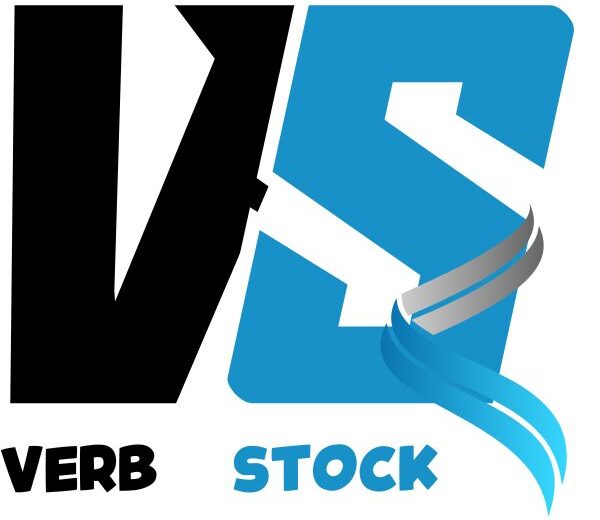In today’s fast-paced world of digital communication, abbreviations and slang have become a fundamental part of how we interact. One such term that often appears in text conversations, especially among younger people, is “WTV.” If you’ve ever wondered what does WTV mean in texting or what does WTV mean in a conversation, you’re not alone. Understanding the WTV meaning in text can make your texting conversations smoother and more in tune with current digital language trends.
In this post, we’ll break down the WTV meaning in text, explain how to use it, when it’s appropriate, and explore its role in modern communication. Whether you’re new to the term or looking to understand its full context, you’re in the right place!
What Does WTV Mean in Text?
The short answer is simple: “WTV” is an abbreviation for “whatever.” It is commonly used to express indifference, flexibility, or a lack of preference in a situation. Think of it as a way to say, “I’m fine with whatever you choose” or “It doesn’t matter to me.”
In texting, WTV meaning is all about convenience. Instead of typing out “whatever,” people use “WTV” to convey the same sentiment quickly. It’s informal, laid-back, and perfect for casual conversations.
WTV Meaning: A Closer Look
Let’s break down the phrase “whatever.” The word itself has been around for centuries, used to express a broad meaning of flexibility or indifference. Over time, “whatever” has taken on a more casual, sometimes dismissive tone, which is reflected in the shortened form “WTV.” People use it when they don’t want to commit to a preference or when they don’t care about the outcome.
How to Use WTV in Text Conversations
WTV is ideal for informal, quick exchanges. It’s a great shorthand when you’re texting friends, family, or anyone in a casual setting. Here are some examples to help you understand WTV meaning in text:
Making Decisions
Let’s say you and your friend are planning a hangout, but you don’t have a strong opinion about the choice of activity. A simple “WTV” can communicate your lack of preference.
Example:
Friend: “Do you want to watch a movie or play video games?”
You: “WTV, you choose!”
When You’re Indifferent
Sometimes you just don’t care about the details. Whether it’s what to eat for lunch or what time to meet, “WTV” keeps it light and easy.
Example:
Friend: “Do you care if we meet at 5 or 6 pm?”
You: “WTV is fine!”
Expressing Casual Nonchalance
WTV often carries a tone of relaxed indifference. It’s used in scenarios where you’re not particularly invested in the outcome.
Example:
Sibling: “Do you want pizza or burgers for dinner?”
You: “Nah, WTV, I’m good with either.”
The Versatility of WTV
WTV isn’t just for making simple decisions or showing indifference. It can be used in a wide range of situations, both social and more formal (though it’s best to use caution in professional settings).
For Dinner Parties
When you’re organizing a casual dinner with friends, the decision of where to go or what to order can sometimes feel like a hassle. Instead of debating over each option, “WTV” can be the perfect way to express that you’re okay with whatever the group decides.
Example:
Friend A: “Pizza or Chinese food for dinner?”
You: “WTV works for me.”
For Overnight Stays
When you’re invited to stay over at a friend’s place, and you’re not picky about the sleeping arrangements, you can use WTV to let them know it doesn’t matter to you.
Example:
Friend: “Do you want the couch or the guest room?”
You: “WTV, I’m fine with either.”
For Holiday Gatherings
Holiday events can sometimes involve multiple opinions and preferences. If you’re not fussed about the details, “WTV” helps keep the atmosphere easygoing.
Example:
Family member: “Should we open gifts on Christmas Eve or Christmas morning?”
You: “WTV, I’m happy with either.”
For Casual Get-Togethers
WTV shines when you’re texting to organize something casual, like meeting up with friends. It’s an easy way to go with the flow.
Example:
Friend: “Do you want to grab coffee or go for a walk in the park?”
You: “WTV, whatever’s fine!”
For Extended Stays
If you’re staying at someone’s house for a few days and the schedule is flexible, WTV can signal your laid-back attitude toward plans.
Example:
Host: “What time do you want to leave tomorrow?”
You: “WTV, whenever’s good.”
WTV in More Serious Situations
While WTV works well in casual settings, it’s important to remember that tone matters. In more formal or sensitive situations, WTV might come off as dismissive or rude. Use it sparingly in contexts where you want to show genuine interest.
For Business Hospitality
In business settings, you might want to avoid using WTV, as it could seem unprofessional. However, in less formal exchanges, it can show your flexibility and willingness to adapt.
Example:
Colleague: “Should we meet at 3 pm or 4 pm tomorrow?”
You: “WTV works for me!”
For Cultural Exchanges
When communicating across cultures, it’s important to be sensitive. WTV might be interpreted differently depending on the cultural context. In more formal settings, it’s better to use phrases that show respect for others’ preferences.
Example:
International Guest: “Would you prefer a local dish or something international?”
You: “WTV, I’m open to trying anything!”
WTV Meaning in Unexpected Kindness
Sometimes, WTV can be used in situations where you don’t expect someone to do something nice for you. For instance, if a friend offers to help you with something but you don’t mind doing it yourself, you could reply with WTV to show you’re okay either way, while still appreciating the gesture.
Example:
Friend: “I can carry those bags for you.”
You: “WTV, I can manage, but thanks!”
WTV Meaning in Hosting Events
When hosting events, especially informal ones, WTV can signal your laid-back approach to planning. It helps reduce pressure when decisions need to be made quickly, like choosing food or entertainment.
Example:
Guest: “Should we start with appetizers or drinks?”
You: “WTV, let’s go with whatever feels right!”
WTV Meaning in Showing Around Town
If you’re showing a guest around your city and they ask for your opinion on different places to visit, responding with WTV can indicate you’re happy to explore anything they choose.
Example:
Guest: “Should we check out the museum or the park next?”
You: “WTV, I’m up for either.”
WTV Meaning in Home-Cooked Meals
When someone offers to cook a meal for you and asks what you want, WTV can communicate that you’re easygoing and grateful for the meal, no matter what they prepare.
Example:
Host: “Do you want pasta or stir fry?”
You: “WTV, I love both!”
WTV Meaning in Weekend Getaways
During a weekend trip with friends or family, WTV is a great way to show you don’t have a strong opinion on the plans. Whether it’s where to go or what to do, WTV keeps things relaxed.
Example:
Friend: “Should we head to the beach or the mountains this weekend?”
You: “WTV, I’m good with either.”
WTV Meaning in Helping During Difficult Times
In emotionally charged situations, you might use WTV to express that you’re okay with whatever support is offered, even if it’s just small gestures that don’t need to be planned in detail.
Example:
Friend: “Let me know if you need anything—do you want me to help with the funeral arrangements?”
You: “WTV, I appreciate you being there.”
WTV Meaning in Hosting International Visitors
When hosting international visitors, WTV can be a way to show you’re flexible with their travel preferences or meal choices, especially if they have no particular requests.
Example:
Guest: “Do you want to go for Italian or Japanese food?”
You: “WTV, either one sounds great!”
WTV Meaning in Pet-Friendly Hospitality
If you’re hosting someone who has pets and they ask if they should bring their pet, WTV can signal your openness to whatever they decide.
Example:
Friend: “Should I bring my dog with me?”
You: “WTV, I love pets!”
WTV Meaning in Special Occasions
During special occasions like birthdays or weddings, WTV can be used to show you’re flexible on the little details that might be up for discussion, like how to celebrate or when to do something.
Example:
Guest: “Do you prefer a quiet dinner or a big party for your birthday?”
You: “WTV, I’ll be happy either way!”
WTV Meaning in Accommodating Dietary Needs
When hosting someone with dietary restrictions, using WTV can be a polite way to express that you’re happy to accommodate whatever is needed without much fuss.
Example:
Guest: “Do you need gluten-free options?”
You: “WTV, we can make it work!”
WTV Meaning in Hosting Game Nights or Movie Marathons
For relaxed gatherings like game nights, WTV is a great way to express flexibility in how the evening goes, whether it’s about the game to play or the movies to watch.
Example:
Friend: “Should we start with Monopoly or Cards Against Humanity?”
You: “WTV, I’m down for anything!”
WTV Meaning in Work-Related Stays
If you’re hosting a colleague or client for a work-related stay, you can use WTV to express flexibility about schedules or meal choices, as long as the work gets done.
Example:
Colleague: “Should we meet at the office or the hotel lobby tomorrow?”
You: “WTV, whatever works best for you.”
WTV Meaning in Unexpected Acts of Hospitality
Unexpected hospitality, whether it’s an unplanned visit or surprise meal, often sees the use of WTV to express your gratefulness for their kindness while also expressing that you’re open to whatever they decide to offer.
Example:
Neighbor: “I made extra dinner, want to join?”
You: “WTV, I’d love to!”
Bonus Tips for Expressing Gratitude
Personalizing Messages
- Use the person’s name
- Reference specific actions they’ve taken
- Acknowledge how their gesture made you feel
- Thank them in a way that fits the context
- Offer something in return when possible
Cultural Considerations
- Understand how “thank you” is expressed in other languages
- Be mindful of gift-giving traditions
- Respect local customs for acknowledging kindness
- Consider non-verbal gestures of appreciation (such as bowing, offering a handshake)
- Adapt your tone based on cultural norms
Digital Options for Sharing Gratitude
- Send a heartfelt message via text
- Post a thank-you note on social media
- Share photos or videos showing your gratitude
- Utilize gratitude apps or e-cards
- Consider digital gifts like e-gift cards
Timing Advice
- Send your gratitude message promptly
- Don’t wait too long, as it can feel less genuine
- Be timely when responding to kind gestures
- A quick response often makes a stronger impression
- For big acts of kindness, wait until you’ve processed your emotions
Gift Pairing Ideas
- Pair a handwritten note with a small token gift
- A bouquet of flowers with a personalized message
- Treat someone to lunch or coffee as a thank-you
- Send a unique regional gift with a thoughtful card
- Give a meaningful book or something tailored to their interests
How to Respond to Thank You Messages
- “It was my pleasure!”
- “Glad I could help!”
- “I’m happy you liked it!”
- “Anytime!”
- “You’re very welcome!”
Relevant Hashtags for Social Media Sharing
- #Grateful
- #ThankYou
- #Appreciation
- #KindnessMatters
- #Gratitude
Conclusion
Understanding WTV meaning and how it fits into modern digital communication helps you navigate texting conversations more smoothly. Whether you’re making casual plans or showing indifference, using WTV can save time and keep things lighthearted. However, always be mindful of the context and tone—while it’s perfect for casual interactions, it might not always be appropriate in more formal or sensitive situations.
So, next time you’re texting a friend or making plans, feel free to drop a casual “WTV” and go with the flow! Just be sure to know when it’s best to keep it light and when to use a more thoughtful response.


